Seminar
International Forest Restoration Experiences
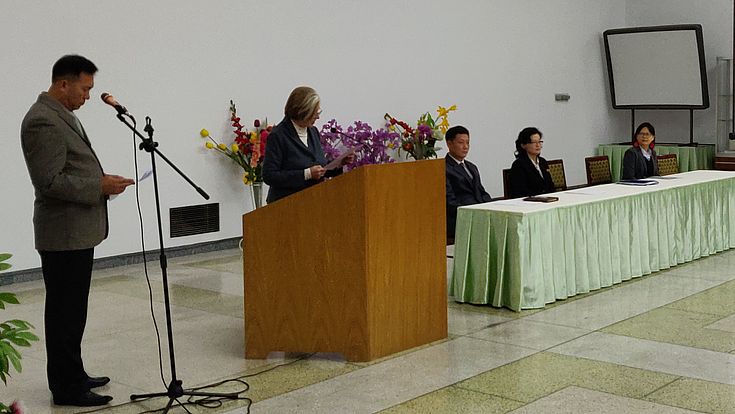
The Forest Landscape Restoration (FLR) approach is crucial to achieve these goals, as it aims to restore ecological integrity at the same time as improving human well-being through multifunctional landscapes. The approach is also highly significant for North Korea. In order to introduce the Bonn Challenge and FLR to an audience in North Korea, the Hanns Seidel Foundation Korea supported a two-day seminar in Pyongyang for more than 50 representatives of the North Korean Forestry sector. Experts from the International Union for the Conservation of Nature and the Global Green Growth Institute led the seminar and shared their experiences and expertise with the participants.

The fall of the Iron Curtain had a major impact on the Korean Peninsula. North Korea had been dependent on the support of the Soviet Union since the Korean War and the subsequent division of the peninsula into South and North. After the support by the Soviet Union had ceased, according to current estimates between two hundred thousand and two million people died during the so-called „Arduous March” in North Korea - a famine striking the country between 1994 and 1998. One of the reasons was the collapse of the state allocation system, due to a lack of food and energy supplies and an ailing centrally administered economy. Some of the effects of this disaster are still evident throughout the country. Bare mountain slopes indicate the lack of food and energy of the population. Between 1990 and 2015, almost 40% of the country's forest area disappeared (World Bank, 2017). Forest Landscape Restoration addresses these challenges and aims to restore the ecological functions of landscapes while improving the livelihood of the local population.
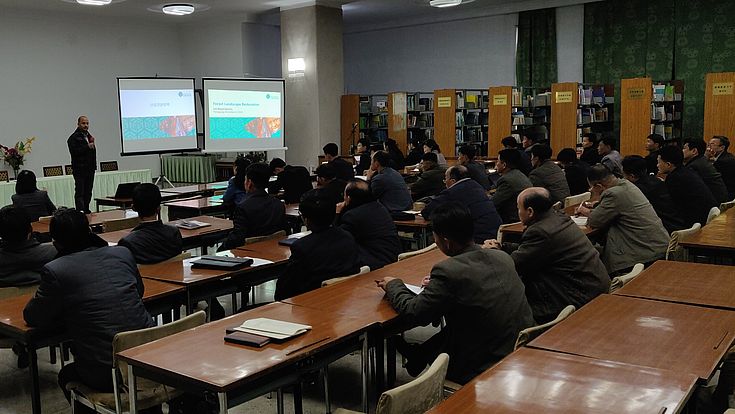
The seminar was opened by the Chairwoman of Hanns Seidel Foundation, Professor Ursula Männle. In her opening remarks she emphasized that forests are an indispensable basis of our life. Forests fulfil important functions in our environment, they also protect the climate as carbon sinks, prevent erosion in mountains, and are important for watershed management. At the same time forests are economically important, for example as sources of firewood and timber. To combine the sometimes-contrasting benefits and advantages is crucial and functioning ecosystems are a key for healthy forests.
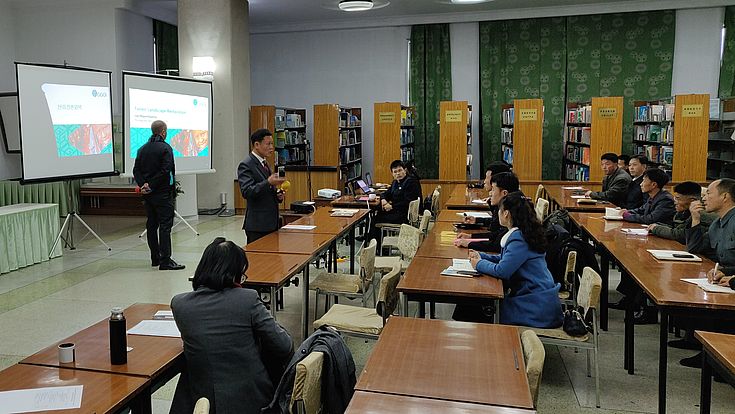
Ms. Li Jia from IUCN gave the first presentation on the “Bonn Challenge – A Global Forest Landscape Restoration Movement”. She introduced the basic of the framework, as well as ecosystem-based adaption to climate change and the role of Forest Landscape Restoration. Afterwards Mr. Luis Miguel explained the planning framework for FLR and how land degradation hampers efforts to achieve the Sustainable Development Goals, e.g. to eliminate poverty and hunger and to reverse biodiversity loss.
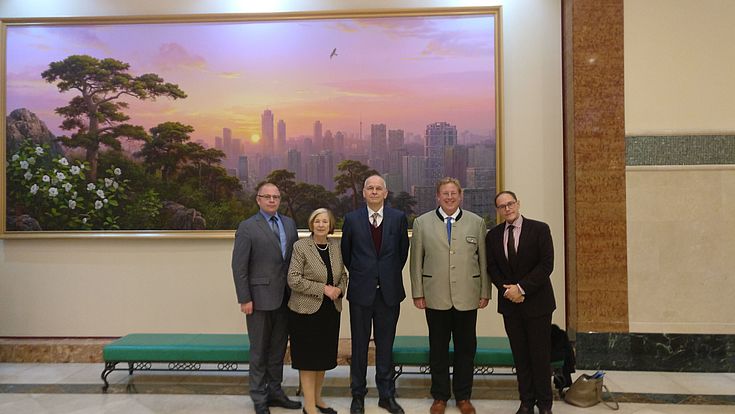
The afternoon was used for a field trip to the Sangso-ri Model Site for Sustainable Reforestation. The site was reforested during the project funded by the European Union and implemented by HSF Korea together with the North Korean Ministry of Land and Environment Protection between 2014 and 2018. Still now, the forest needs to grow, but the return of biodiversity is a positive sign that the ecosystem is recovering after the site was severely degraded for decades.
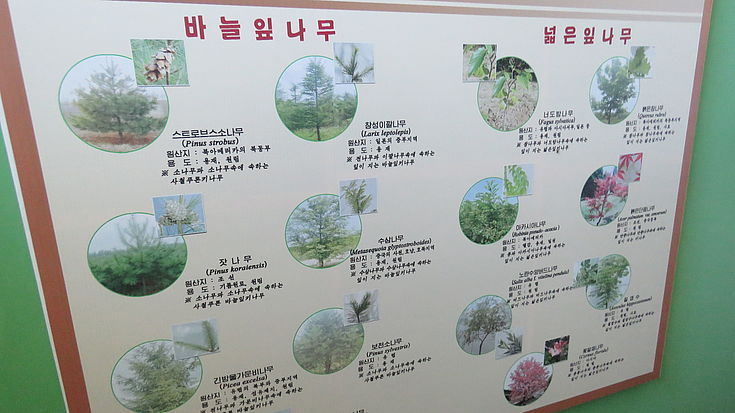
During the second day of the workshop the two speakers gave detailed introduction into topics such as Land Degradation Neutrality and landscape restoration models in different countries, with case examples from Colombia, Indonesia, Myanmar and Ethiopia. A speaker from North Korea presented on forest and land degradation in DPRK and the country’s restoration programs. Group discussions followed among the international experts and participants to identify model cases of forest restoration in North Korea and priorities for potential future projects. Site visits to the Central Tree Nursery and expert exchanges with relevant ministries were also conducted during the visit.
